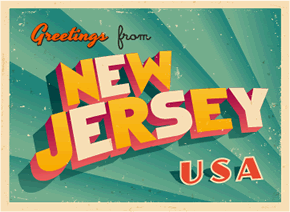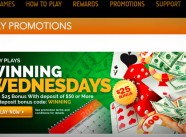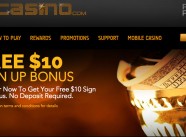Why eWallets are so Important to Online Gambling
Online payment processing and specifically eWallets have been a hot topic of conversation in the New Jersey online gambling market both in a positive and negative way.
For those of you interested in how eWallets work, and why the two industries are indelibly intertwined, here is a look at the longstanding relationship between online gambling sites and eWallets.
Two industries with a tenuous but interdependent relationship
Since its earliest days, online poker has relied on eWallets (online payment processors) to help players quickly and effortlessly transfer funds between their online poker accounts and their banks and credit cards. All along eWallets and online gaming sites have had a tenuous but symbiotic relationship with one another that continues to this day.
For instance, in New Jersey players are getting mixed signals, as Skrill (a.k.a. Moneybookers) has begun processing payments for the tropicanacasino.com and virgincasino.com websites, while PayPal has decided to continue its policy of not accepting online gambling transactions.
How this relationship formed is one of timing.
The two industries began at roughly the same time, with PayPal and Neteller both launching in 1999 at the same time the online poker industry was getting off the ground, so it was no surprise that the two would be so indelibly linked. But just a couple years later PayPal and Neteller found themselves on very divergent paths when it came to online gambling.
PayPal’s Origins
PayPal came into being in 1999 when its parent company Confinity launched a money transfer service it called PayPal. At first PayPal was just part of a broader selection of products, but Confinity was purchased by X.com in early 2000 and by the end of the year — after some serious internal strife that saw the president and CEO of X.com leave the company — PayPal was the central focus of the company.
By 2002 PayPal was a massive online payment processor, which led to a successful IPO in February of 2002, followed by a $1.5 billion purchase of the company by ebay in late 2002. At the same time PayPal made the decision to stop accepting online poker and online gambling transactions.
Neteller’s Origins
Neteller launched at roughly the same time as PayPal, in 1999, but that is pretty much where the similarities between the two companies end. While PayPal went public with its IPO in 2002, was later purchased by ebay, and shied away from processing anything that could remotely be construed as an illegal payment (such as online gambling), Neteller remained a privately held company and had no qualms about processing online gambling transactions.
With Neteller taking a completely different tack when it came to online gambling, by 2005 the company was processing 80% of the worldwide online gambling transactions, which accounted for some 95% of Neteller’s revenue stream.
Essentially, without online gambling there wouldn’t be a Neteller, and without payment processors like Neteller, there might not be a thriving online poker industry in 2005. However, after the passage of UIGEA legislation in 2006 the US government went after Neteller’s operation and the company was forced to leave the US market, which caused a near-year-long freeze on US Neteller users’ accounts.
PayPal Today
Even with online gaming’s new “above the board” status, PayPal is still declining online gambling transactions. Players are hopeful that with the legislation passed in Nevada, Delaware, and New Jersey, PayPal might reverse course somewhere down the road.
Neteller Today
Neteller is now back in the US online gambling market thanks to the legalization of online poker in Nevada and online gambling in Delaware and New Jersey. Neteller (under the name NBX Merchant Services) has received an iGaming license as a Vendor Registrant in New Jersey, and is expected to start processing US online gambling transactions for the first time since 2007.
Other payment processors
Following the success of PayPal and Neteller eWallets proliferated in the Internet and in today’s online gambling world there are plenty of legitimate eWallets to choose from. In New Jersey several have applied for and received iGaming licenses including, Skrill/Moneybookers (licensed in New Jersey and already working with the Tropicana to process online casino transactions) and PaySafeCard.






